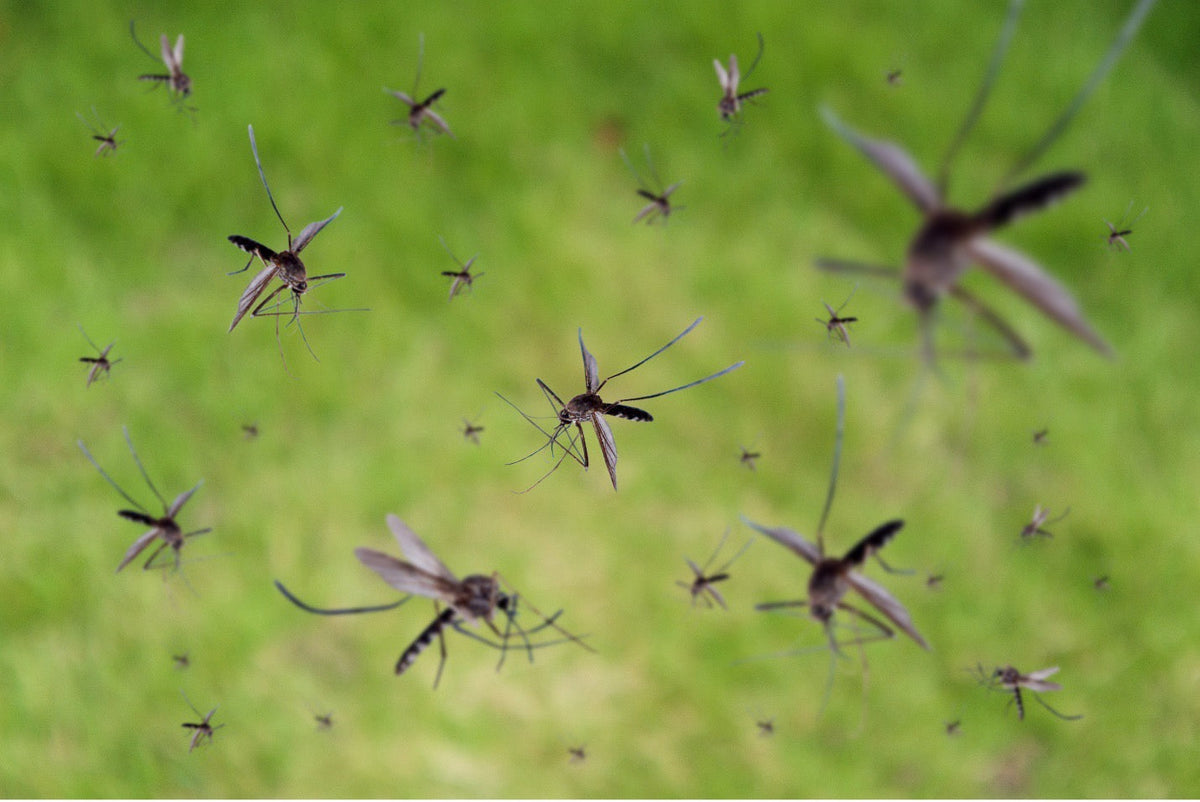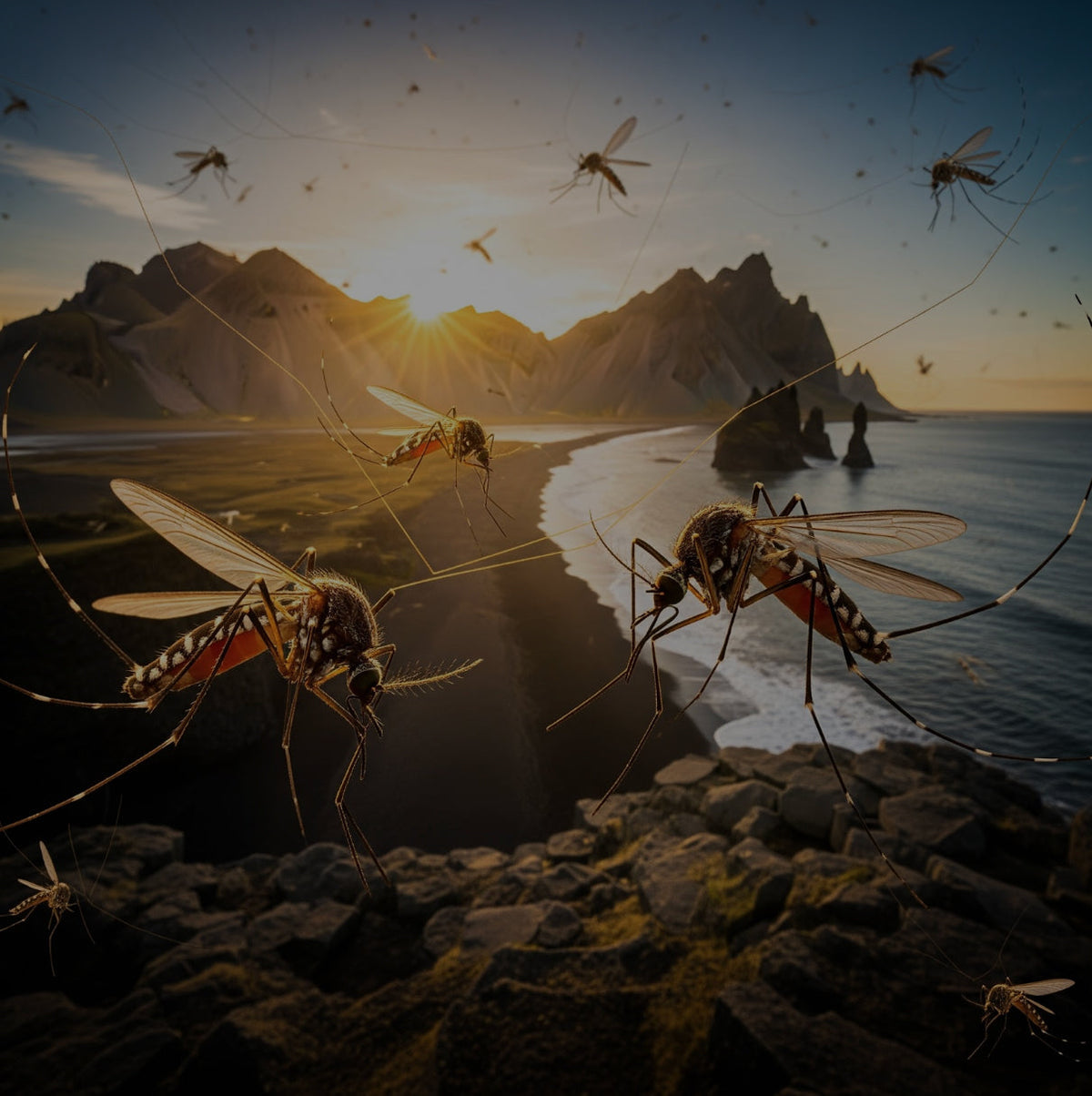
When Do Philadelphia Mosquitoes Leave?
A Closer Look at the End of Mosquito Season in the Philadelphia Area
Introduction
As the rhythm of summer loses its beat and the crisp, golden hues of autumn slowly take over Philadelphia’s neighborhoods, residents begin to wonder: When do mosquitoes go away in the Philadelphia Area? For weeks—or even months—mosquitoes have been faithful, if uninvited, companions to every barbecue, patio night, playground trip, and evening dog walk. Understanding exactly when these pests finally disappear isn’t just about comfort; it’s about reclaiming cherished outdoor spaces, reducing health risks, and adapting routines as the seasons change. Let’s take a deep dive into the lifecycle of mosquitos in Philadelphia and how the city transitions from swatting to sighs of relief each fall.
By the way, here is a great guide for learning about mosquito seasons in different regions.
Mosquito Season in Philadelphia: The Span and the Signs
Philadelphia’s mosquito troubles usually start as soon as consistent warm weather arrives—typically in late spring when temperatures climb above 50°F. Mosquitoes need warmth, moisture, and long enough days to complete their breeding cycle, so you’ll notice their presence as soon as these conditions return after winter. According to MosquitoNix, the peak of mosquito activity overlaps with the city’s most humid and wet months, especially from late spring through early fall.
But equally important to the annual arc is the easing of their activity. The question “when do mosquitoes go away in the Philadelphia Area” really hinges on the onset of colder weather. As nighttime lows consistently dip below 50°F, the lifecycle of local mosquito populations begins to grind to a halt. Fewer eggs hatch, adults die off or become inactive, and the risk of new bites drops off sharply. Most seasons, this transition happens gradually throughout September and into October, often aligning with the city’s first light frosts.
What Drives Mosquitoes Away?
The exodus of mosquitoes from Philadelphia and surrounding suburbs isn’t due to travel or migration—it’s about survival. Mosquitoes are highly sensitive to temperature. Their bodies cannot withstand prolonged cold, and their reproductive cycles are dependent on a minimum warmth threshold. Colder nights essentially “flip a switch” that tells these insects it’s time to slow down and, for many, die off.
Female mosquitoes may look for protected, moist habitats to lay their last batch of eggs before winter fully arrives. Some eggs, especially from certain species, can survive the cold months in a dormant state, waiting for spring warmth before hatching. By contrast, adult mosquitoes and their larvae mostly perish as temperatures drop below freezing, aligning the city’s first frost with the end of practical mosquito season.
Rainfall also plays a supporting role in mosquito behavior. While the waning days of summer can bring intense tropical storms that briefly increase mosquito numbers, it’s the sustained cool-down and reduced humidity—classic hallmarks of autumn in the Philadelphia Area—that ultimately drive their decline.
Lifestyle and Daily Patterns as Mosquito Season Ends
One of the pleasures of living in a place with true seasons like the Philadelphia Area is watching how life shifts along with the weather. As the air cools, residents can begin to open their windows again, plan outdoor dinners without layers of bug repellent, and let children play outside with less worry about itchy bites. This gradual reduction in mosquito activity is often accompanied by longer, more comfortable evenings, decreased need for citronella candles or backyard fans, and fewer reminders to drain standing water from every flowerpot and gutter.
In the final weeks of the season, Philadelphians may still encounter occasional mosquitoes, particularly after an unseasonably warm rain or during a late spell of Indian summer. But by the time Halloween decorations go up and leaves begin to carpet the sidewalks, mosquito encounters dwindle to nearly zero.
Practical Signs Mosquito Season Is Ending

Knowing when “mosquitoes go away in Philadelphia Area” isn’t an exact science, but a few signs are universally reliable:
● Nighttime te
mperatures fall steadily below 50°F.
● Morning dew lingers longer, but mosquito activity at dawn and dusk noticeably declines.
● Standing water increases without a corresponding surge in bug bites.
● Community chatter about mosquito problems tapers off; outdoor neighborhood events no longer require warnings or preventative measures.
● Residential bug prevention routines—fans, sprays, screens—become less urgent and are slowly retired for the winter months.
Adjusting for the Next Season

As fall sets in and mosquito worries vanish, it’s a good moment to reset and prepare for the next cycle. Fall cleanup, gutter maintenance, and garden prep help minimize breeding locations for next year’s population. Removing or storing outdoor furniture and draining dormant water features further reduce the chance of overwintering eggs or larvae. Residents may store their repellents and focus more on rodent-proofing or winterizing their homes, knowing they have a well-earned reprieve from mosquito management—at least until next spring.
Summary
For Philadelphians, the annual question, “when do mosquitoes go away in the Philadelphia Area?” finds its answer in the city’s signature autumn weather shift. As soon as consistent cool nights set in—usually by late September or October—mosquitoes leave along with the last echoes of summer. Their lifecycle is halted by falling temperatures, reduced daylight, and shifting humidity. Knowing how and when this process unfolds helps residents plan their outdoor schedules and home maintenance with confidence and comfort.
In summary: The disappearance of Philadelphia's mosquitoes is driven by environmental cues—especially cold night temperatures and shorter daylight—heralding the long-awaited return of bug-free evenings and a chance to relax outdoors before winter really settles in.
FAQ: When Do Philly Mosquitoes Leave?
Q1: What specific temperature makes mosquitoes go away in the Philadelphia Area?
Mosquito activity declines dramatically as nighttime temperatures fall consistently below 50°F. This threshold signals the end of their active season in the region.
Q2: Can mosquitoes survive Philadelphia winters?
Most adult mosquitoes and larvae do not survive the winter. However, some eggs may enter a dormant state and hatch in the spring when temperatures rise.
Q3: What month do mosquitoes usually disappear in Philly?
Most years, mosquitoes begin to vanish in late September, with very low activity by October, especially after the first light frost.
Q4: Why do I sometimes see mosquitoes in very late fall?
Warm autumn spells or sudden rains may briefly increase mosquito sightings. However, these are usually the season’s last stragglers and don’t persist once regular cold weather returns.
Q5: How can I reduce next year’s mosquito problem during the winter?
End-of-season outdoor cleanup—removing standing water, cleaning gutters, and storing items that collect rain—reduces places where mosquito eggs can overwinter and hatch once spring warmth returns.
For more details, scientific breakdowns, and direct tips regarding mosquito activity in the Philadelphia Area, visit the MosquitoNix guide at What Time of Day Are Mosquitos Most Active?.
In closing: Knowing when to expect the end of mosquito season not only allows you to enjoy Philly’s remarkable fall but also helps you prepare for a more comfortable, bite-free year ahead. Stay informed, enjoy the great outdoors, and celebrate the much-anticipated departure of one of summer’s last—and least welcome—guests.
Leave a comment
Comments will be approved before showing up.





